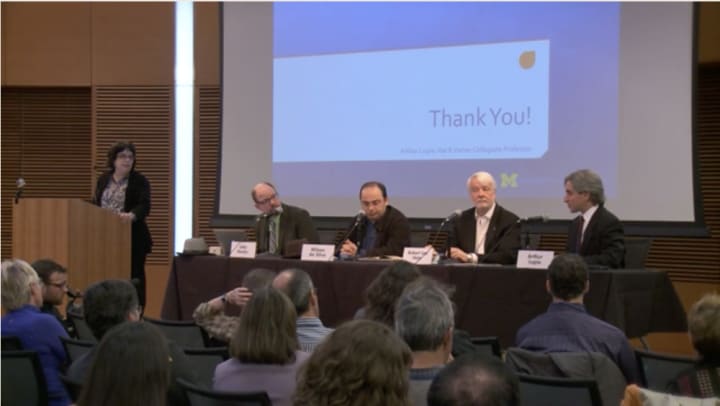Changing Minds: ‘Just the Facts’ Ain’t Enough
Simply presenting people with evidence does not alter beliefs, especially those that are deeply held. But that doesn’t mean you have to tolerate quackery.

FACTS DON’T WIN, it turns out: Ideas are more powerful than facts, especially ideas that conform to your world view.
Deep down, I guess I’ve always known this. You cannot engage in debate with climate change contrarians, creationists or anti-vaccination proponents without encountering a dogged intransigence to logical arguments backed by overwhelming data.
No amount of devastating ripostes, or unlimited armoury of crushing evidence, seems to have any effect. As each fallacy, misconception, inconsistency and even brazen falsehood — as each of them is decapitated by evidence and lucid reasoning, another specious argument arises. It’s like battling the Hydra, the mythical serpent with 100 heads which, when any was severed, another would grow in its place.
My fear was confirmed at ‘Science Writing in an Age of Denial’, a gathering of science journalists and social researchers at the University of Wisconsin in Madison, where over two days in April 2012, the issue was dissected in great detail. I’d been invited to speak on two panels, but I spent most of the time listening to the excellent talent the organisers had brought to bear, and delighted in the insights they offered.

Sean B. Carroll, chair of biology at the University of Maryland, listed the six steps used by all denialists in discussion:
Doubt the science.
Question scientists’ motives and interests.
Magnify legitimate, normal disagreements among scientists and cite gadflies as authorities.
Exaggerate the potential harm of believing the science (and scare people).
Appeal to personal liberty and freedom (no government official should tell me what vaccinations I need).
Show that accepting the science would represent a repudiation of a cherished common philosophy or worldview held by most people.
Carroll actually gained this insight from reading a scholarly paper on the history of chiropractors and their long antipathy to vaccination. The paper found that this stems from the founding philosophy of chiropractic, which eschews the germ theory of infectious disease and considers almost all ailments to be the result of spinal nerve dysfunction caused by misplaced vertebrae.

Arthur Lupia, a professor of political science at the University of Michigan who studies how people make decisions, said educating people about divisive issues never works. And it’s not because people are stupid or don’t have enough information. “The problem isn’t the audience, the problem is us [the communicators]. We have unrealistic expectations.” Simply put, just presenting facts does not alter beliefs, he said.
My fellow panelist Christie Aschwanden, a distinguished science writer, noted that people don’t assimilate facts in a vacuum — they filter them through their pre-existing belief system. Psychologists call this ‘motivated reasoning’: the tendency to seek out evidence that conforms to our views. “We seek facts that confirm what we already believe, and reject the ones that contradict our worldview.” she added.
Lupia argued that to make a dent against such odds, you need credibility to help carry the day, and this is only is bestowed by the audience: it’s about how the audience perceives you. He defined credibility as being “perceived common interests” multiplied by “perceived expertise”.

Essential — and often underrated, I think — is humour; just because a topic is serious doesn’t mean you can’t make a funny aside. Especially one that gently ridicules your opponent, or smites a central thesis of the opposing argument with a comical flourish. As the audience laughs, you have subtly pulled them closer to your camp. To say nothing of what it does to the confidence of your opponent.
It also helps to make analogies, and break arguments out of the regimented boxes that often bind them. For example: we demand solid evidence from a physician, an accountant or a mechanic before making decisions. So why accept any less when considering climate change, genetically modified food, stem cells, biodiversity, nanotechnology or evolution?
It’s not that these issues are necessarily complex: it’s just that they can’t be reduced to a sound bite. Complex ideas require timely consideration, an exposition of the evidence and, yes, an effort to understand.
But I think people will genuinely try to understand if you connect with them and present evidence in a lively manner, rather than pander to their prejudices.
Watch the video of the ‘Communicating Science in Politicised Environments’ (opening panel of Science Writing in the Age of Denial).
____________________________________________________
Like this story? Please click the ♥︎ below, or send me a tip. And thanks 😊
About the Creator
Wilson da Silva
Wilson da Silva is a science journalist in Sydney | www.wilsondasilva.com | https://bit.ly/3kIF1SO






Comments
There are no comments for this story
Be the first to respond and start the conversation.